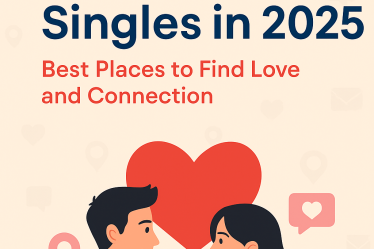
Divorce is often painted as the end of something—but what if it’s the beginning? Dating after divorce can feel overwhelming, especially if you’ve been out of the scene for years. You might be wondering if you’re ready, what’s changed in the dating world, or whether anyone will understand where you’re coming from. The good news: you’re not alone, and yes—there’s love (and confidence) after divorce.
This guide walks you through how to start dating again in a way that’s emotionally healthy, empowering, and honest. We’ll cover healing, rebuilding confidence, navigating modern dating platforms, setting boundaries, and managing life with kids if that applies to you.
Healing First — Why Self-Reflection Is Key
Before jumping into dating, it’s essential to give yourself space to heal. Divorce is more than just a breakup—it often involves a massive identity shift, changes in routine, and emotional wounds that need time to close.
Here’s what that healing can look like:
- Grieve what was lost—even if you’re the one who initiated the divorce.
- Reflect on patterns in the past relationship to avoid repeating them.
- Talk to a therapist or coach to process the emotional fallout.
- Focus on yourself—build routines and habits that restore your sense of independence and self-worth.
According to the American Psychological Association, people often underestimate how long emotional recovery takes. This isn’t about putting life on hold—it’s about moving forward on solid ground.
Knowing When You’re Ready to Start Dating Again
There’s no universal timeline. Some people start dating a few months after their divorce is finalized; others wait years. The key is recognizing whether you’re dating to connect—not just to fill a void.
Ask yourself:
- Have I accepted the end of my marriage?
- Am I excited about new possibilities—not bitter about the past?
- Do I know what I want this time around?
If you’re still stalking your ex’s social media or hoping your new dates “show them what they lost,” you might not be ready. That’s OK. Taking your time is better than diving in too soon.
Rebuilding Confidence in Dating and Relationships
One of the toughest challenges is trusting yourself again. Maybe you feel like you’ve aged out of the dating scene, or like your best years are behind you. They’re not.
Ways to build confidence:
- Invest in yourself—physically, mentally, emotionally.
- Do things you enjoy solo: travel, join a class, pick up a new hobby.
- Practice positive self-talk. You are not defined by your divorce.
- Celebrate small wins: a good date, a kind message, a laugh.
Confidence is built through action—not waiting to “feel ready.” The more you engage, the stronger you’ll feel.
Setting Healthy Boundaries and Avoiding Past Mistakes
Dating after divorce is a chance to rewrite the rules. You’ve likely learned a lot—about what works, what doesn’t, and what you absolutely won’t tolerate.
Boundaries to set early on:
- Communication: Be honest about your pace and needs.
- Personal time: Protect your schedule and space.
- Financial: Be clear about independence and expectations.
- Physical boundaries: Move at your own speed—no pressure.
- Long-term goals: Talk about compatibility, not just chemistry.
Boundaries aren’t walls—they’re filters. They help you stay aligned with what matters most and prevent you from slipping back into unhealthy patterns.
Introducing Your Kids (If Applicable)
If you’re a parent, dating after divorce adds a layer of complexity. It’s not just about you anymore.
Key considerations:
- Wait until it’s real. Don’t introduce your kids to every person you date.
- Talk to them about your dating life when it becomes relevant.
- Keep routines steady. Your kids need consistency during transitions.
- Coordinate with your ex when necessary—especially if custody or schedules are involved.
Experts recommend waiting until a relationship is stable (6+ months) before making introductions. And even then, go slow.
Conclusion: Embracing the Next Chapter with Openness and Courage
You’re not starting from scratch—you’re starting from experience. Dating after divorce is your chance to build something new, something healthier. You’ve learned what you don’t want. Now it’s time to discover what you do want—with clarity, confidence, and no rush.
Whether it leads to another long-term relationship or simply helps you reconnect with yourself, the journey is worth it.
Resources for moving forward:
- Therapy platforms: BetterHelp, Talkspace
- Divorce recovery groups: Meetup, Facebook groups
- Books: Rebuilding When Your Relationship Ends by Bruce Fisher; Getting Back Out There by Susan J. Elliott
- Podcasts: The Divorced Woman’s Guide, Dear Sugars



